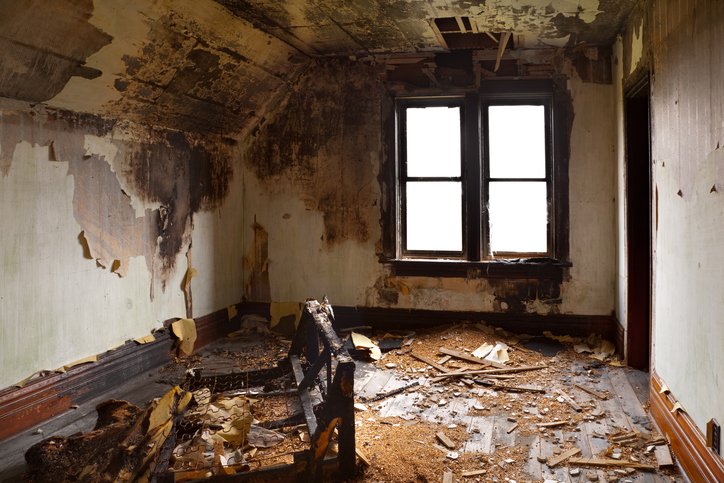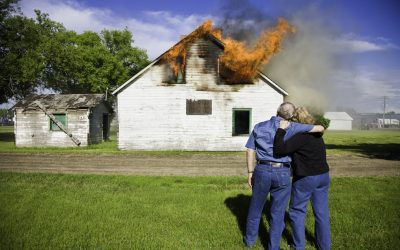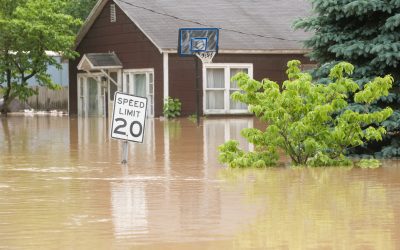11 Common Reasons Insurance Companies Deny Fire Claims
A fire can devastate your home and leave you grappling with emotional and financial challenges. Filing a fire insurance claim should provide relief, helping you cover repairs, replacements, and other expenses. However, many homeowners face unexpected obstacles when their claims are denied. Understanding the reasons insurance companies deny fire claims is essential to avoiding potential pitfalls and ensuring a successful claims process.
This blog explores the most common reasons fire claims are denied, the solutions to overcome these issues, and how professionals like Care Public Adjusters can help you maximize your claim.
Why Do Insurance Companies Deny Fire Claims?
Fire damage is often covered under standard homeowner’s insurance policies, yet navigating the claims process can be complex. Insurance companies scrutinize every detail to minimize their liability, which can lead to denials. Some reasons for these denials are preventable, while others require professional advocacy to address effectively.
11 Common Reasons Insurance Companies Deny Fire Claims
1. Policy Exclusions
One of the most common reasons for denial is that the specific fire damage falls under policy exclusions. Insurance policies often contain fine print that excludes certain types of fires, such as those caused by:
- Arson committed by the policyholder
- Negligence (e.g., leaving flammable materials near an open flame)
- Uninsured structures, like detached sheds or garages
Solution: Review your policy carefully to understand exclusions. If in doubt, consult with a public adjuster who can clarify your coverage.
2. Lack of Proof of Ownership
Insurance companies require proof that you owned the items damaged or destroyed in the fire. If you cannot provide receipts, photographs, or other evidence, your claim may be denied.
Solution: Create a home inventory list with receipts and photos. Store these records digitally to ensure they’re accessible even after a disaster.
3. Delays in Filing the Claim
Timely reporting is critical in the claims process. Delaying your fire insurance claim can give insurers a reason to deny it, as they may argue that the delay prevented them from properly assessing the damage.
Solution: Report fire damage to your insurance company immediately. Most policies require notification within a specific timeframe.
4. Insufficient Documentation
Incomplete or poorly documented claims are a leading cause of denial. Missing details, such as photos of the damage or repair estimates, can weaken your case.
Solution: Take clear photos and videos of the damage, gather repair estimates, and submit all required documents promptly.
5. Misrepresentation or Inaccurate Information
Providing inaccurate information, whether intentional or accidental, can lead to claim denial. Insurance companies verify every detail during the investigation process, and discrepancies can raise red flags.
Solution: Be honest and accurate when filing your claim. Double-check all forms and statements for errors.
6. Arson or Fraud Allegations
If the insurer suspects arson or fraud, they may deny your claim outright. Arson for profit or staging a fire is illegal and a common reason claims are denied.
Solution: Cooperate fully with investigations and provide evidence of your innocence if accused. Consulting with a public adjuster or legal professional can help protect your rights.
7. Policy Lapses or Nonpayment of Premiums
If your policy was inactive at the time of the fire due to missed payments, your claim will be denied.
Solution: Regularly review your policy to ensure it’s active. Set up automated payments to avoid lapses.
8. Pre-Existing Damage
Insurance companies may claim that some or all of the damage was pre-existing and unrelated to the fire.
Solution: Conduct regular inspections of your property and document its condition. This evidence can prove that the damage occurred during the fire.
9. Intentional Acts by the Policyholder
Fires caused intentionally by the homeowner or through gross negligence, such as leaving an unattended fire burning, are typically not covered.
Solution: Practice fire safety and ensure compliance with policy terms to avoid allegations of negligence.
10. Insufficient Coverage Limits
If the cost of repairs exceeds your policy’s coverage limits, the insurer may deny the portion of the claim that exceeds the limit.
Solution: Periodically review your policy to ensure your coverage limits align with the current value of your home and possessions.
11. Failure to Mitigate Further Damage
After a fire, homeowners are required to take reasonable steps to prevent additional damage, such as boarding up windows or covering exposed areas. Failure to do so can lead to denial.
Solution: Secure the property immediately after the fire to prevent further damage. Keep receipts for any temporary repairs.
Fire Insurance Claims Problems: Common Challenges Homeowners Face
Even if your claim isn’t outright denied, you may face other issues, such as:
- Delays: Insurers may stall the process to avoid timely payouts.
- Lowball Offers: Companies may offer settlements far below the cost of repairs.
- Complex Documentation: The paperwork can be overwhelming, especially when you’re recovering from a traumatic event.
Solution: Work with a public adjuster to handle negotiations, expedite the process, and ensure you receive a fair settlement.
Why Choose Care Public Adjusters for Fire Insurance Claims?
Navigating fire insurance claims can be daunting, especially when insurers are looking for ways to minimize payouts. Care Public Adjusters specialize in resolving fire insurance claims problems and advocating for homeowners. Here’s how we can help:
1. Thorough Documentation
Our team conducts a detailed assessment of your property to ensure every aspect of the damage is accounted for. We document evidence meticulously, strengthening your claim.
2. Expert Negotiation
We have extensive experience negotiating with insurance companies, ensuring you receive the compensation you deserve. Our goal is to maximize your settlement.
3. Timely Filing
Care Public Adjusters help you meet all deadlines and manage the paperwork, reducing the risk of denial due to delays or errors.
4. Stress-Free Process
Filing a fire claim can be emotionally draining. By handling the entire process, we allow you to focus on rebuilding your home and life.
Real-Life Case Study: Fire Insurance Claim Success
A Florida homeowner faced a devastating house fire, only to have their insurance company deny the claim on the grounds of “insufficient documentation.” Feeling helpless, they reached out to Care Public Adjusters. Our team conducted a second inspection, gathered the necessary evidence, and filed an appeal. After extensive negotiations, we secured a settlement that covered the full cost of repairs and replacement of personal belongings—over $75,000 more than the insurer’s initial offer.
This success story highlights the importance of professional advocacy when facing fire insurance claims problems.
Key Steps to Avoid Fire Insurance Claim Denials
Filing a fire insurance claim can be an overwhelming process, especially when you’re trying to recover from the emotional and financial impact of a fire. Denied claims add an unnecessary layer of frustration, but the good news is that many denials can be avoided with proper preparation and attention to detail. Here are key steps you can take to minimize the risk of denial and ensure a smoother claims process.
1. Understand Your Policy
One of the most common reasons insurance companies deny fire claims is policy exclusions or limitations that the homeowner wasn’t aware of. Your insurance policy is a legally binding document that outlines what is and isn’t covered. Fire damage is typically covered under most standard homeowner’s insurance policies, but there may be exceptions, such as:
- Fires caused by arson (especially if suspected to be intentional by the homeowner)
- Damage to detached structures not listed in the policy
- Fires resulting from gross negligence, like leaving flammable items near open flames
Actionable Tip: Take the time to read and understand your policy. If certain sections are unclear, ask your insurance provider for clarification or consult with a public adjuster who can explain your coverage in detail. Knowing your policy inside and out is your first line of defense against denial.
2. Keep Records
Documentation is critical when filing an insurance claim. Insurers require proof of ownership for items damaged or destroyed in the fire, as well as evidence of the fire’s impact on your home. Without proper records, your claim could be denied for lack of proof.
How to Keep Records:
- Maintain an updated home inventory with details about your possessions, including purchase dates, values, and serial numbers.
- Take photos or videos of your belongings and store them securely, either digitally or offsite.
- Keep receipts for significant purchases or upgrades to your home.
Actionable Tip: Use apps designed for home inventory management or a simple spreadsheet to track your belongings. Review and update your inventory regularly to ensure it remains accurate.
3. Act Quickly
Delays in reporting fire damage to your insurance company can jeopardize your claim. Many insurance policies include strict time limits for filing claims, and waiting too long can give your insurer grounds to deny your claim. Additionally, delaying your report may prevent the insurer from accurately assessing the damage, further complicating your case.
Actionable Tip: Contact your insurance provider immediately after a fire. Be prepared to provide preliminary information about the incident, such as the date and time of the fire, its cause (if known), and an initial estimate of the damage.
4. Document Everything
Proper documentation strengthens your claim and protects you in case of disputes. Start documenting the damage as soon as it is safe to do so. This includes:
- Taking detailed photos and videos of the affected areas, including structural damage and destroyed items.
- Saving receipts for temporary repairs, such as boarding up windows or securing exposed areas.
- Keeping a log of all communication with your insurance company, including emails, phone calls, and notes from meetings.
Actionable Tip: Create a folder specifically for your fire claim and organize all related documents, photos, and correspondence. This will make it easier to retrieve and share information when needed.
5. Work with Professionals
Navigating the insurance claims process can be challenging, especially when you’re unfamiliar with the terminology or procedures. Public adjusters are licensed professionals who work on your behalf to ensure your claim is filed correctly, thoroughly documented, and fairly compensated. They understand how to handle common tactics insurers use to delay or deny claims and can negotiate effectively on your behalf.
Benefits of Hiring a Public Adjuster:
- They conduct a thorough property inspection to identify all damages, including those that may not be immediately visible.
- They help you compile and organize necessary documentation, strengthening your claim.
- They advocate for you during negotiations, ensuring you receive the full compensation you’re entitled to.
Conclusion: Take Control of Your Fire Insurance Claim
Fire damage can be one of the most devastating events a homeowner can experience, leaving emotional, physical, and financial scars. Unfortunately, dealing with a denied insurance claim can add an extra layer of frustration and stress to an already challenging situation. Understanding the reasons insurance companies deny fire claims is the first step toward overcoming these hurdles. Whether it’s policy exclusions, insufficient documentation, or allegations of negligence, taking proactive steps can significantly improve your chances of a successful claim.
The key to navigating this process lies in preparation and support. By keeping accurate records of your possessions, acting quickly to document damage, and familiarizing yourself with your insurance policy, you can avoid many common pitfalls. However, even with the best preparation, disputes with insurance companies can arise. When this happens, having the right team by your side makes all the difference.
At Care Public Adjusters, we specialize in resolving fire insurance claims problems and advocating for homeowners to ensure they receive the compensation they’re entitled to. Our experienced team understands the complexities of the claims process, from filing and documentation to negotiations and appeals. We work tirelessly to ensure that every aspect of your claim is thoroughly reviewed and properly addressed, maximizing your settlement and alleviating the burden on your shoulders.
Don’t let insurance companies dictate the outcome of your claim. Whether your claim has been denied or you’re struggling to navigate the process, Care Public Adjusters is here to help. We take pride in our proven track record of helping homeowners like you secure the compensation they need to rebuild and move forward.
You deserve a partner who will fight for your rights while you focus on what truly matters—restoring your home and peace of mind. Contact Care Public Adjusters today for a free consultation, and let us handle the complexities of your fire insurance claim. Together, we’ll work to ensure you achieve the best possible outcome.
Call to Action
If you’re struggling with a fire insurance claim or facing a denial, don’t face it alone—reach out to Care Public Adjusters for expert assistance. Navigating the complex world of insurance claims can be overwhelming, especially after experiencing the emotional and financial toll of a fire. Insurance companies often look for ways to minimize payouts or deny claims altogether, leaving you frustrated and unsure of your next steps. That’s where we come in.
At Care Public Adjusters, we bring years of experience and a deep understanding of insurance policies to the table. Our dedicated team is committed to fighting for your rights and ensuring you receive the compensation you deserve. From conducting detailed property inspections to gathering strong documentation and negotiating with insurance companies, we handle every step of the process on your behalf.
Whether your claim was denied due to insufficient documentation, policy exclusions, or other reasons, we have the expertise to address the challenges and advocate for you. Our mission is to make the process stress-free, allowing you to focus on rebuilding your home and life. Don’t settle for less than what you’re entitled to—contact Care Public Adjusters today to schedule your free consultation and take the first step toward a successful resolution.



